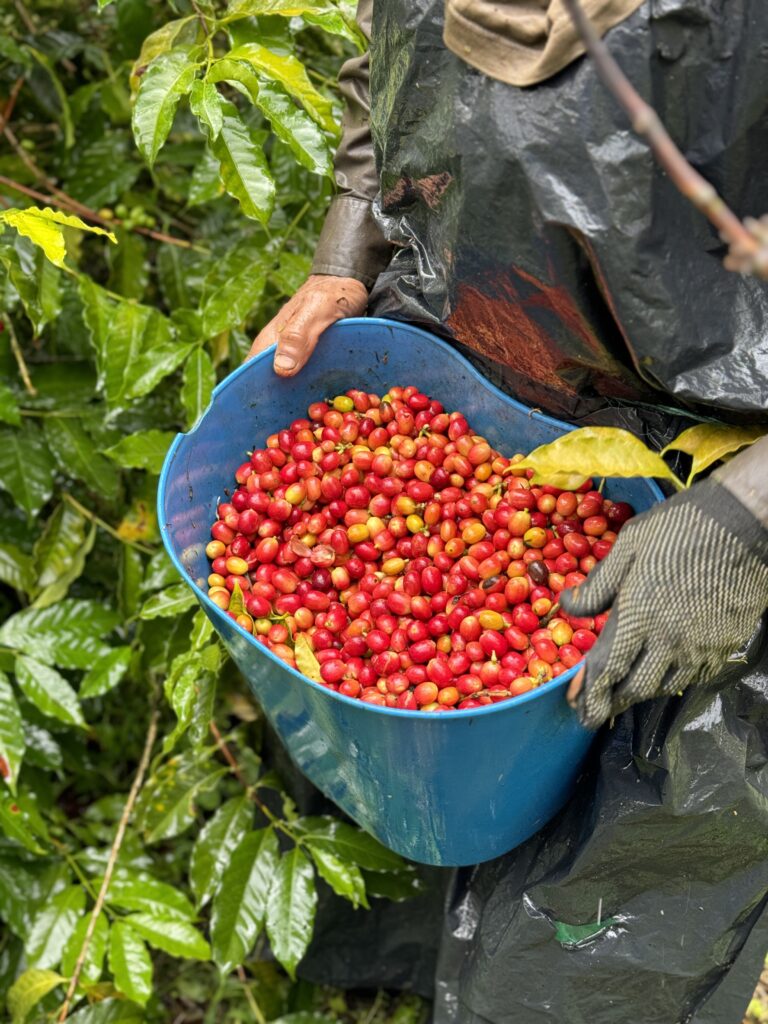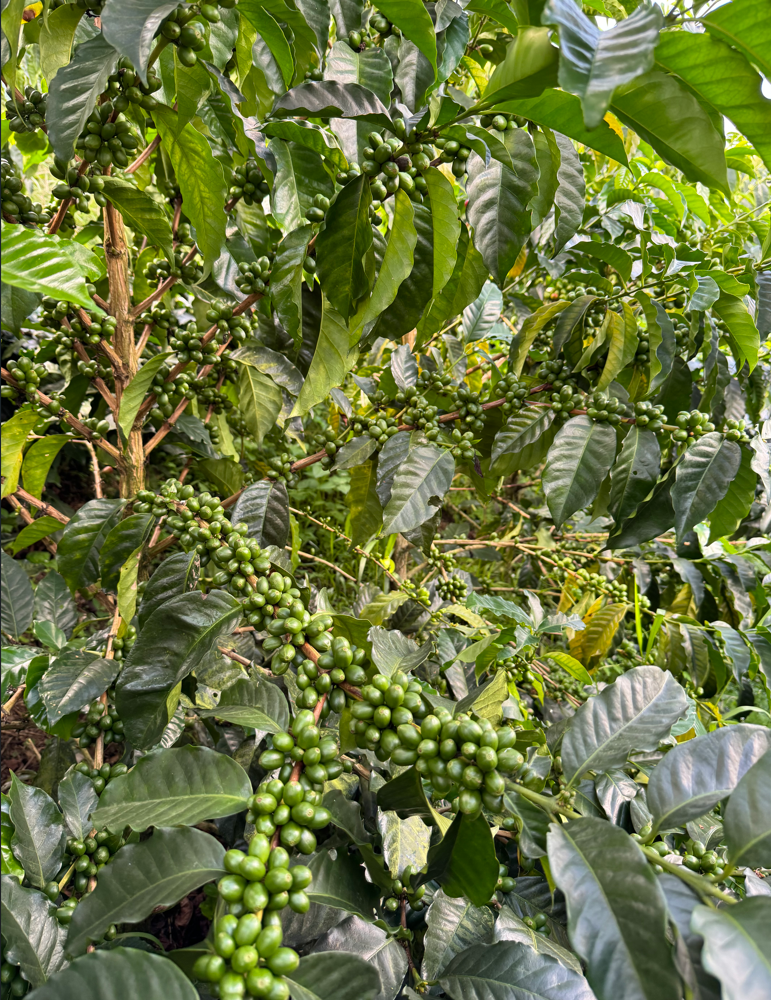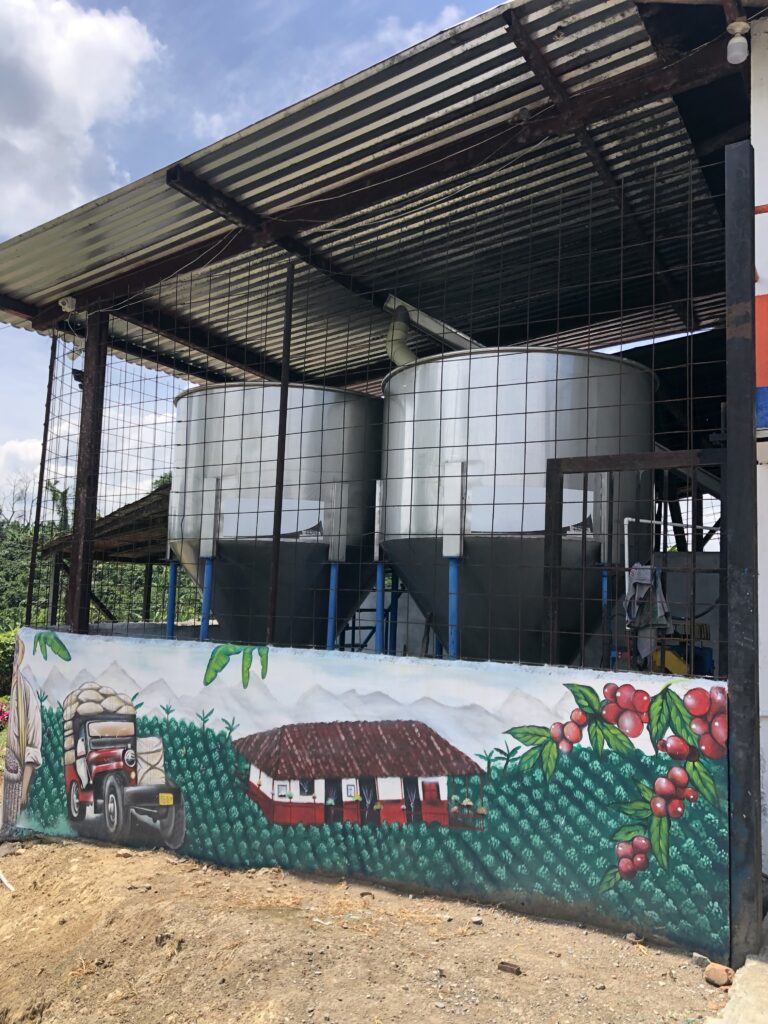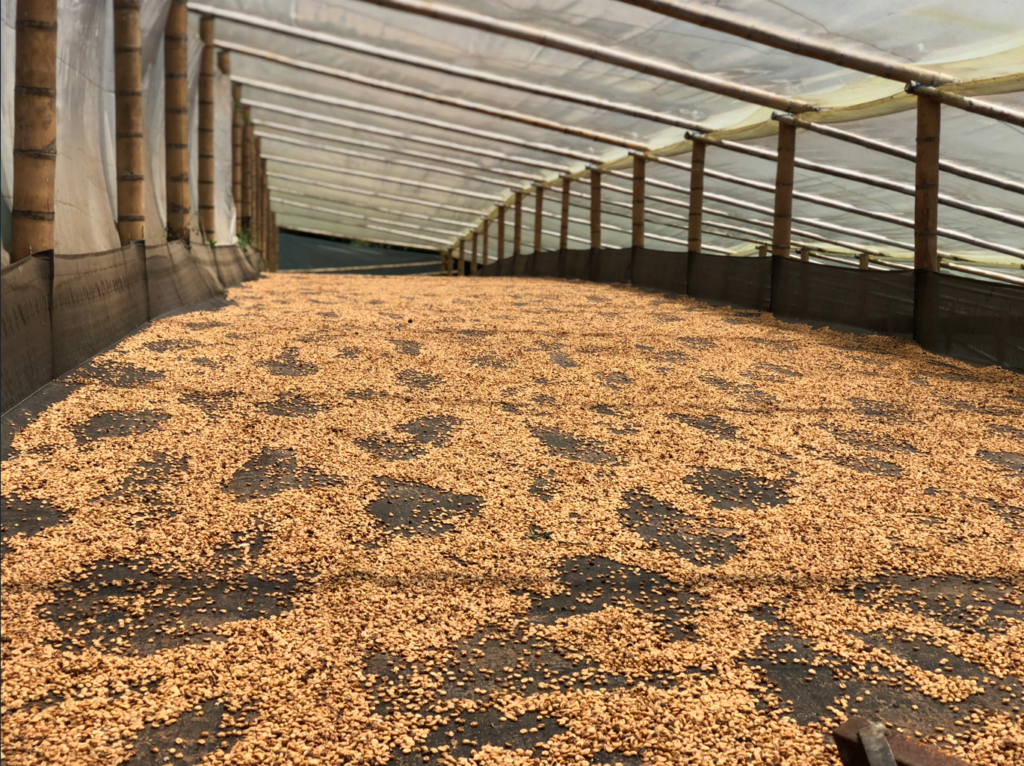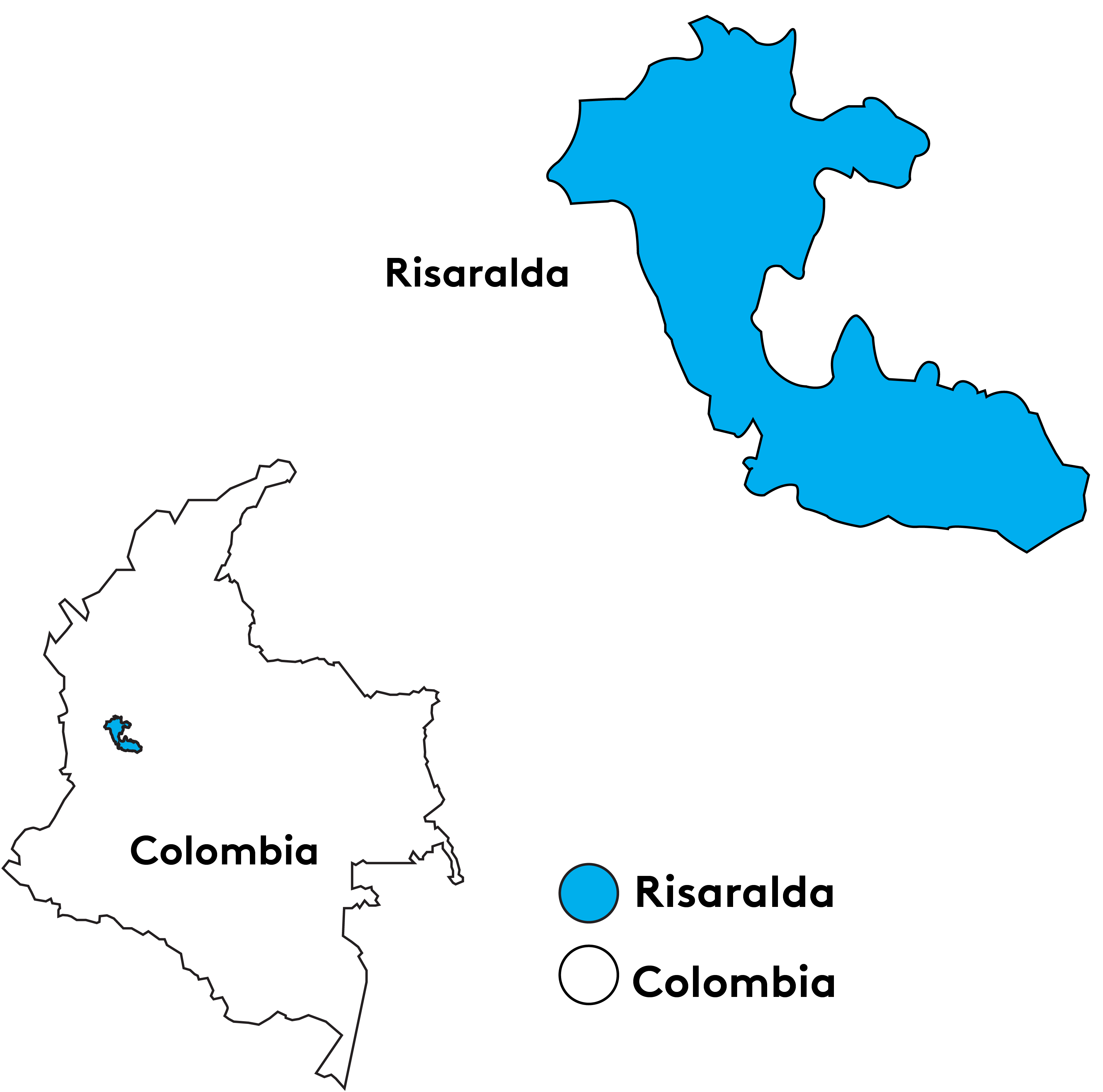Julio Madrid’s Finca Milán is located in Vereda El Hogar in the municipality of Pereira in Colombia’s Risaralda growing region. The farm is near the Los Nevados Natural National Park, a 58,300 hectare reserve that surrounds the northern volcanic complex formed by Nevado del Ruiz volcano. Here, Finca Milan rests 1600 meters above sea level, receiving temperatures year-round of 18–28°C which contributes to the quality climate conditions found on the property, benefiting the many varieties grown on the farm including Castillo, Colombia, Caturra, Catiope, Pink Bourbon and Red Bourbon. Finca Milán is the second largest farm in Café UBA, an alliance of farms in Risaralda which also includes La Riviera and Buenos Aires.
Julio Cesar Madrid Tisnés is a third-generation coffee producer and has dedicated himself to the production of quality coffees. This dedication has led him to focus on producing coffee varieties that are relatively rare in Colombia and are known for their complex cup profiles, including varieties like Sudan Rume, Yirgacheffe, Laurina, and several others. Julio’s daughter, Maria Antonia Madrid, is a biologist who has researched the organoleptic impact of using microbial starter cultures in coffee fermentation, helping Julio to improve his processing methods.
Cultured Washed processing was developed by Café UBA after several years of trial and error. Freshly harvested coffee cherries are placed in a bag for 10-12 hours to gain rapid increase in temperature. The bacteria present in this environment and on the cherries start breaking carbs into sugars, which increases temperature even more. The coffee is then cooled in a tank with water at 8-10 °C, after which it is de-pulped. While this process is taking place, the maypop fruits, passionfruits, and curuba fruits are crushed and prepared to be added to the yeast and bacteria culture. Pulped coffee, prepared fruits, and activated starter cultures are placed in tanks to generate anaerobic fermentation for 6–8 days. The fermented coffee is then washed and sundried for 15-20 days to reach its ideal humidity.

